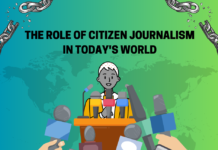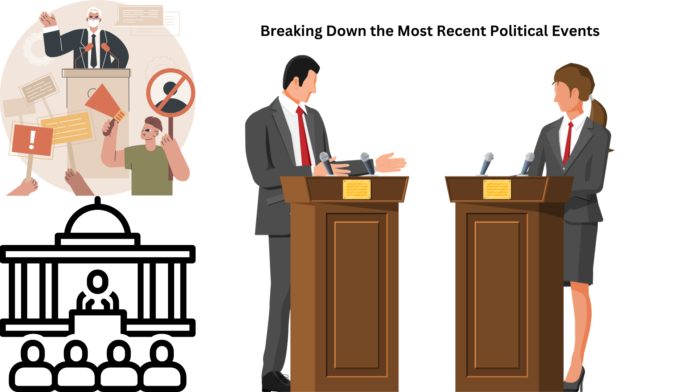Introduction
The events in politics are endless in today’s world and help mold our societies in many different ways. In the last couple of years, if not more, the fluidity of the nature of politics on an international scale has been so forcibly brought home. From elections to protests, from rallies of support to deliberations of international diplomacy-the knowledge is basically an absolute prerequisite to responsible citizenship and participation.
This article tries to dismember recent political times and investigates what this means and its significance. We are going to look at varied aspects including who is involved, why, and what might happen from all this, and we are also answering some of the most frequent questions to make it easier to get a hold of today’s politics.
The Global Political Climate
The growing nature of the political climate in the modern world is essentially interconnected. For example, contemporary events have swept one nation after another in a ripple-like manner, in manners very significant to complying with shifts in international relations and domestic policies. This also brings about serious shifts in political dynamics, recently witnessed in the rise of populist movements banking on economic disgruntlements and cultural anxieties in many countries. Likewise, debates on immigration, trade policies, and climate changes pose a challenge to coordinated governance and global responses.
One of the best examples is the impact of the COVID-19 pandemic on political decision-making. Governments around the world had to face situations that were previously unknown, and how different countries responded underlined both the strengths and weaknesses of different political systems. As nations wrestled with public health crises, economic downturns, and civil unrest, it became clearer why effective leadership and responsive governance were important.
Key Recent Political Events
Major Elections and Their Aftermath
Elections represent a turning point in every democracy: they reflect the will of the people and clearly prefigure policy for the years to come. Many countries have been gripped by the fever of recent elections, such as in the United States, Germany, and Brazil. There have been seismic changes in tectonic plates of power emanating from the most recent elections-for example, the 2020 Presidential Election in the United States saw the change in administration, with the victory of President Joe Biden setting a new policy direction from his predecessor.
The 2021 German federal election finally opened the door for a coalition government by Olaf Scholz to take over from long-serving Chancellor Angela Merkel. Presaging a still-evolving political landscape, traditional party systems in Europe now increasingly find themselves set upon by new political movements and coalitions.
Demonstrations and Social Movements
Recent politics has been characterized by a rise in the momentum of social movements. From Black Lives Matter in the United States through climate strikes initiated by young people to pro-democratic protests in Hong Kong, protests reveal an efficacy attached to collective action and popular sentiment. These demonstrations have directed attention to issues like racial injustice, climate change, and government accountability and have pushed leaders to acknowledge these issues.
Social movements never affect only policy changes; they often remake the public discourse and reverberate in political conversations. Self-organization and protest by ordinary citizens engender a cultural change insofar as established ways are brought into question and leaders are held to account.
International Relations and Diplomacy
International relations are in headlined news: this summer’s summits, treaties, and conflicts have emphasized the complexity of international politics. A prime example would be the ongoing tension between the United States and China, having great ramifications on trade, security, and cooperation internationally. Competition for technological supremacy had become a prime focus of this relationship, especially in domains like artificial intelligence and cybersecurity.
Fighting in Ukraine has changed the nature of European security, marked by the permanence of NATO expansion and energy dependence. As nations continue to navigate an increasingly multipolar world, emphasis on either diplomacy or dialogue cannot be overstated.
The Role of Media in Politics
It is impossible to imagine political events without the role of the media in shaping public perception. Traditional news, social media platforms, and citizen journalism all engage the reader with a flow of information that shapes and colors their perception of the events. In an era of misinformation and “fake news,” the responsibility to report with accuracy falls more critically on the media than ever.
Media coverage can give great prominence to some, while minimizing other, parallel narratives, and may greatly influence peoples’ opinions on many topics. This suggests that citizens should receive political news when critically assessing sources and seeking a variety of hard news.
Politics and Technology: The Effects
Technology has irreversibly changed the political landscape. The rise of social media has transformed the way that campaigns are run and through which politicians relate to their constituents. This allows online platforms to facilitate outreach in a compartmentalized fashion, whereby candidates can reach intended demographics and rally support.
That, plus data analytics and artificial intelligence, are now part and parcel of modern campaigning. Political parties use data to understand the appeal of voters and to craft messages for those needs in order to enhance their chances of success at the ballot box.
Public Opinion and Political Events
Public opinion is potent in defining political happenings and decisions. Opinion polls and surveys delineate citizen sentiment and help policymakers and political leaders. When the proportion of citizens in support increases, legislative action or changes in political strategy can occur in such instances.
A good example is the growing interest in global warming, which has forced many governments to give the highest priority to environmental policies and to enter into international agreements on climate issues. The public pressure has advanced the discussion of issues dealing with racial equity and social justice, changing the way reforms have been pursued across various sectors.
Predictions of the Future in Politics
Given the pace of unfolding political events, what can we expect next? At least a number of trends could stipulate the political landscape:
Continued Polarization: Polarization in political ideologies will continue to increase, thus polarizing societies. This will divide society and hinder constructive dialogue and compromise that are required to solve a problem.
Youth Participation: With political engagement among younger generations on the rise, the list of priorities in political life will continue to shift to those issues that most concern them. Climate change, social justice, and economic disparity are likely to be at the forefront of political discourse for the foreseeable future.
Global Cooperation: Pandemics, climate change, and other global challenges in the future would call for increased cooperation among nations. In such a scenario, multilateral efforts and international agreements might assume greater importance to restore stability and assuage concerns.
Conclusion
In brief, knowing recent political events is knowing how to live today. We can gain much from several very important happenings, powerful personalities, and general trends about forces shaping our societies. In times to come, being informed and engaged will be relevant in fostering a democratic and just world. It was critical thinking on political happenings and their aftermath that gave people the possibility of civic participation and the advocacy of change in particular.
Frequently Asked Questions (FAQs)
What are some of the most crucial recent political events?
Major elections, social movements, and international diplomatic initiative round out the list of significant political happenings that shape today’s scene.
How do elections affect political dynamics?
Elections could change the guard, make and break policy issues, and express the mood of the electorate.
What is the role of protests in shaping politics?
Protests can raise awareness about important issues, put pressure on the political leaders, and sometimes even effect social change.
How does media coverage shape the public’s perception about political events?
Media shaped the narrations and influenced the viewpoint with which the events were seen and interpreted, thus commanding public opinion and dictating political discourse.
What is the significance of public opinion in politics?
Therefore, public opinion motivates policy changes and acts to influence the operatives of political leadership; hence, it is an important factor in governance. How has technology affected political campaigning? Technology has enabled targeted outreach, data-driven strategies, and real-time engagement with voters. What are the challenges facing modern democracies? Other challenges facing us today include misinformation, political polarization, and eroding trust in our institutions. How do international relations shape domestic politics? These changes also have their ripples in the country, influencing priorities of domestic policy, measures of security, and economic strategy. What are some of the emerging trends in global politics? These trends are an increase in populism, more engagement by the youth, and an earnest effort toward global cooperation on shared challenges facing humanity. How do citizens involve themselves in political matters? Except through the process of voting, taking part in activism, and initiating or building up conversations on issues, people can participate.









































